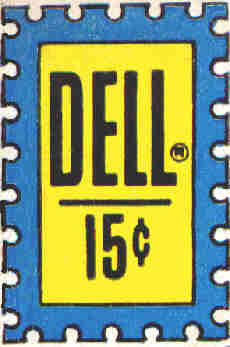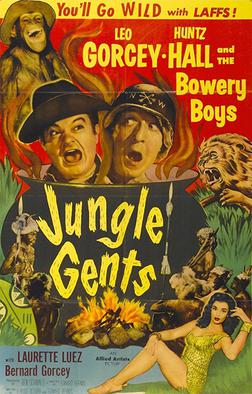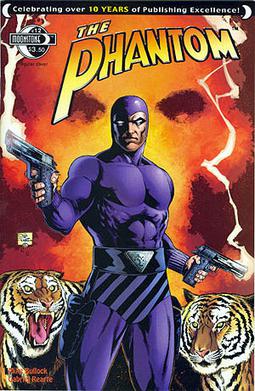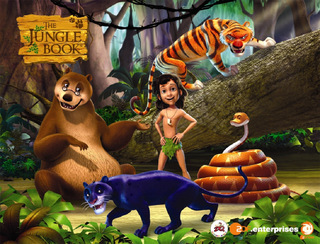
Mowgli is a fictional character and the protagonist of Rudyard Kipling's The Jungle Book stories. He is a feral boy from the Pench area in Seoni, Madhya Pradesh, India, who originally appeared in Kipling's short story "In the Rukh" and then became the most prominent character in the collections The Jungle Book and The Second Jungle Book (1894–1895), which also featured stories about other characters.

Terrytoons was an American animation studio in New Rochelle, New York, that produced animated cartoons for theatrical release from 1929 to 1973. Terrytoons was founded by Paul Terry, Frank Moser, and Joseph Coffman, and operated out of the "K" Building in downtown New Rochelle. The studio created many cartoon characters including Fanny Zilch, Mighty Mouse, Heckle and Jeckle, Gandy Goose, Sourpuss, Dinky Duck, Little Roquefort, the Terry Bears, Dimwit, and Luno; Terry's pre-existing character Farmer Al Falfa was also featured often in the series.

The Jungle Book (1894) is a collection of stories by the English author Rudyard Kipling. Most of the characters are animals such as Shere Khan the tiger and Baloo the bear, though a principal character is the boy or "man-cub" Mowgli, who is raised in the jungle by wolves. The stories are set in a forest in India; one place mentioned repeatedly is "Seeonee" (Seoni), in the central state of Madhya Pradesh.

Maya is an American hour-long adventure television series that aired on NBC, Saturdays from 7:30 p.m. to 8:30 p.m., from September 16, 1967 until February 10, 1968. The series is a follow-up to the 1966 film of the same name, with Jay North and Sajid Khan reprising their roles. Set in the Indian jungle, the series centered on an American boy searching for his missing father, a big game hunter.

Jay Waverly North Jr. is an American actor. His career as a child actor began in the late 1950s with roles in eight TV series, two variety shows and three feature films. At age 7 he became a household name for his role as the well-meaning but mischievous Dennis Mitchell on the CBS situation comedy Dennis the Menace (1959–1963), based on the comic strip created by Hank Ketcham.

Dell Comics was the comic book publishing arm of Dell Publishing, which got its start in pulp magazines. It published comics from 1929 to 1974. At its peak, it was the most prominent and successful American company in the medium. In 1953 Dell claimed to be the world's largest comics publisher, selling 26 million copies each month.

Norman Eugene "Clint" Walker was an American actor. He played cowboy Cheyenne Bodie in the ABC/Warner Bros. western series Cheyenne from 1955 to 1963.

Jungle Jim is the fictional hero of a series of jungle adventures in various media. The series began on January 7, 1934, as an American newspaper comic strip chronicling the adventures of Asia-based hunter Jim Bradley, who was nicknamed Jungle Jim. The character also trekked through radio, film, comic book and television adaptations. Notable was a series of films and television episodes in which Johnny Weissmuller portrayed the safari-suit wearing character, after hanging up his Tarzan loincloth. The strip concluded on August 8, 1954.

Sajid Nadiadwala is an Indian film producer, writer, and director who works in Hindi cinema. He is the owner of Nadiadwala Grandson Entertainment. Grandson of filmmaker A.K. Nadiadwala, Sajid has written and produced films including Housefull (2010), Baaghi (2016) to directing Kick (2014) that brought him various debutant director awards, and wrote the Marathi film Lai Bhaari that was produced by Riteish Deshmukh.

Sajid Khan is an Indian actor and singer. Born into poverty in the Bombay slums, he became the adopted son of Bollywood filmmaker Mehboob Khan, founder of Mehboob Studios. He worked in a handful of Indian films, debuting in his father's Academy Award-nominated Mother India (1957) and its sequel Son of India (1962). He later found more success overseas, working in international productions, including films and television shows in North America, such as Maya (1966) and its television adaptation, as well as the Philippines and United Kingdom. He was a teen idol in North America and the Philippines from the late 1960s to early 1970s.

A jungle girl is an archetype or stock character, often used in popular fiction, of a female adventurer, superhero or even a damsel in distress living in a jungle or rainforest setting. A prehistoric depiction is a cave girl.

None but the Brave is a 1965 epic anti-war film directed by Frank Sinatra, with special effects by Eiji Tsuburaya. Produced by Tokyo Eiga, Toho, and Sinatra Enterprises, it was the first film to be internationally co-produced between Japan and the United States.

Two on a Guillotine is a 1965 American horror film produced and directed by William Conrad and starring Connie Stevens. The screenplay by John Kneubuhl and Henry Slesar is based on a story by Slesar. The movie would be the first in a series of low-budget suspense dramas made by Warner Bros in the vein of the successful William Castle films, and was followed by My Blood Runs Cold and Brainstorm, both also released in 1965 with Conrad as director. A fourth movie, The Thing at the Door, was proposed, but never made.

Sajid Kamran Khan is an Indian film director, television presenter, comedian and an actor who works in the Hindi film industry. He is best known for the Housefull film series, Heyy Babyy (2007) and Humshakals (2014). Khan also served as a judge on the Indian reality television show Nach Baliye. He is the brother of choreographer Farah Khan.

Jungle Gents is a 1954 American comedy film directed by Edward Bernds and starring The Bowery Boys. The film was released on September 5, 1954 by Allied Artists and is the thirty-fifth film in the series and the film debut of Clint Walker in an uncredited appearance at the end of the film.

The Phantom is a fictional costumed crime-fighter who operates from the fictional country of Bangalla originally Bengali. The character was created by Lee Falk for the adventure comic strip The Phantom, which debuted in newspapers on February 17, 1936.

The Jungle Book is a 3D CGI animated television series co-produced by DQ Entertainment International, MoonScoop, Ellipsanime Productions, ZDF, ZDF Enterprises, TF1 and Les Cartooneurs Associés. It is based on the Rudyard Kipling book of the same name.
The Jungle Book is a Disney media franchise that commenced in 1967 with the theatrical release of The Jungle Book. It is based on Rudyard Kipling's works of the same name. The franchise includes a 2003 sequel to the animated film and three live-action films produced by Walt Disney Pictures.

















